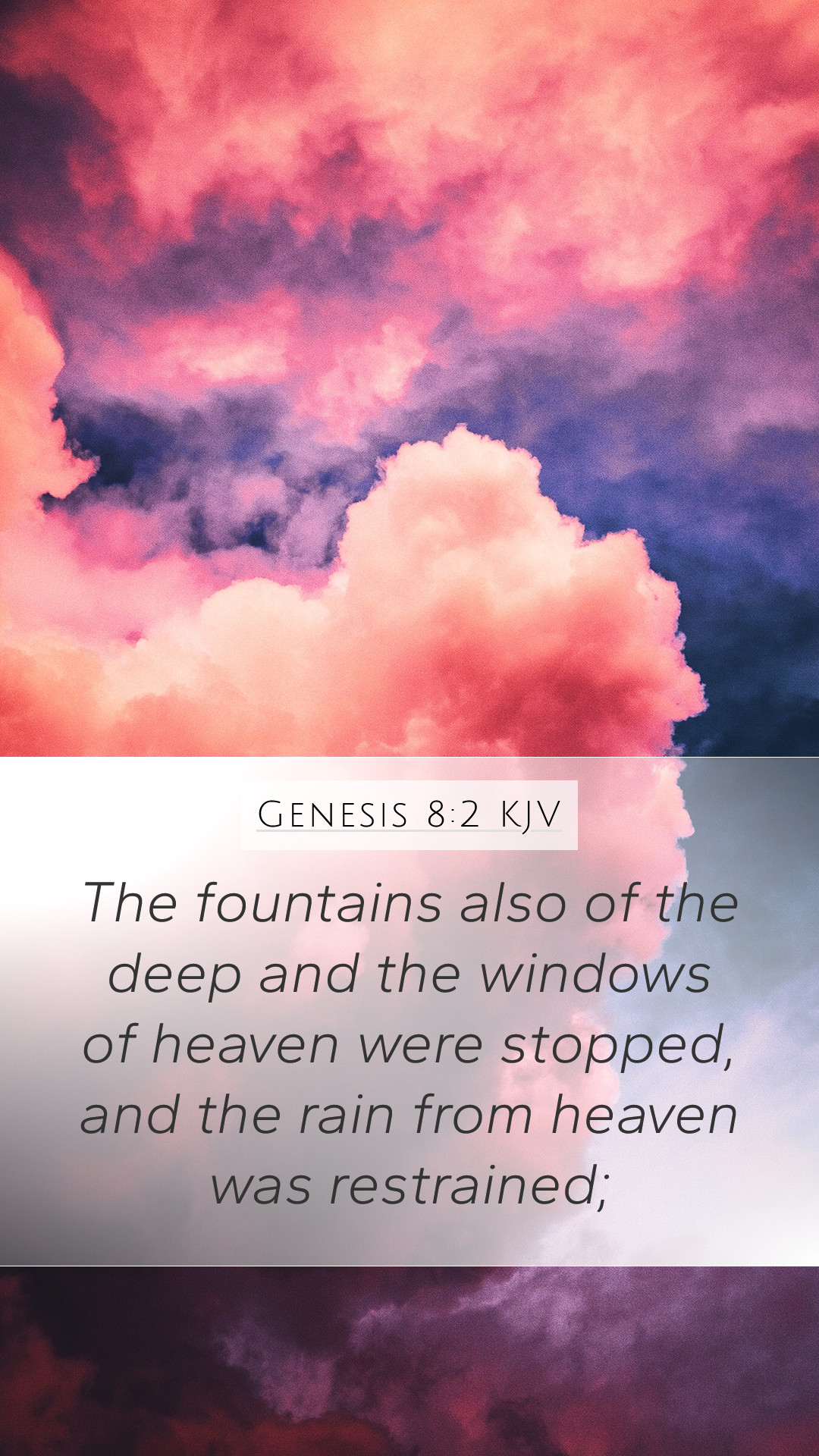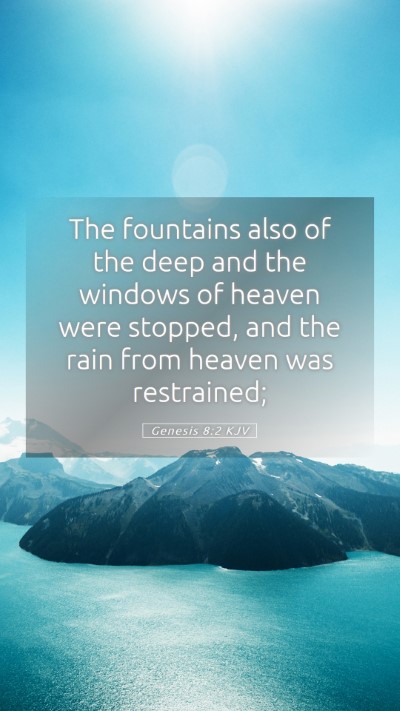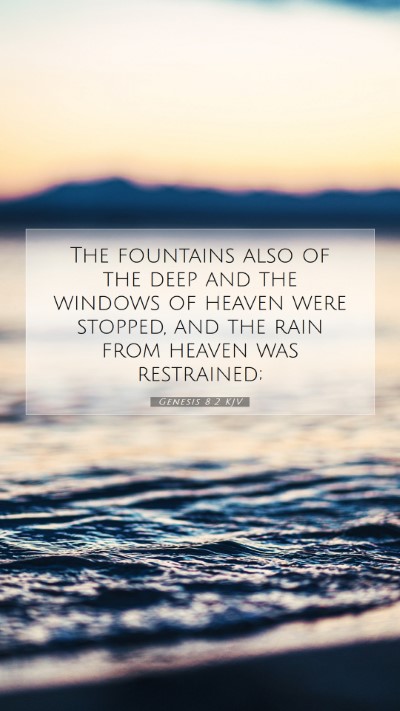Understanding Genesis 8:2
Genesis 8:2 states: "The fountains also of the deep and the windows of heaven were stopped, and the rain from heaven was restrained." This verse comes at a pivotal moment in the biblical narrative, specifically following the great flood during Noah's time. The significance of this verse extends beyond its historical context and delves into themes of divine sovereignty, judgment, and mercy. In this detailed analysis, we combine insights from public domain commentaries by Matthew Henry, Albert Barnes, and Adam Clarke to provide a holistic understanding of this scripture verse.
Context and Background
To appreciate the richness of Genesis 8:2, we should first consider the events leading up to it. The flood narrative in Genesis recounts God's decision to cleanse the earth of mankind’s wickedness. Noah, described as a righteous man, was instructed to build an ark to preserve his family and pairs of every animal. The flood serves as a symbol of divine judgment, but also of salvation and covenant. As the waters begin to recede, Genesis 8:2 signifies a shift: the end of judgment and the beginning of restoration.
Meaning of Key Phrases
-
"Fountains of the deep": This phrase refers to the underground waters that were unleashed during the flood. Matthew Henry emphasizes the power of God's creation, suggesting that the deep is under His control and can be released or restrained at His command.
-
"Windows of heaven": Albert Barnes interprets these "windows" as openings in the heavens from which rain fell. It symbolizes divine provision and protection but also divine judgment when the heavens were opened for the flood.
-
"Stopped" and "restrained": Both words illustrate God’s sovereign authority to cease and control natural phenomena. Adam Clarke notes that this control over nature is critical in understanding God's overarching plan for humanity and the earth.
Theological Implications
Genesis 8:2 serves as a profound reminder of God's governance over creation. The cessation of the flood demonstrates both His judgment and His mercy. While He judged the sinful world, He also provided a way for Noah and his family to begin anew. This underscores the dual aspect of God's nature—He is both just and merciful. Theologically, this verse invites believers to reflect on how God's actions in history resonate with His promises today.
Applications for Today
For modern readers, Genesis 8:2 offers several points of reflection and application. It presents an opportunity to consider how God’s control over nature mirrors His control over our lives. Just as He paused the flood, He brings moments of calm and restoration in our turbulent times. This verse encourages us to trust in God's timing and His ability to bring about change in our lives.
Further Bible Verse Commentary
Analyzing Genesis 8:2 can lead to deeper study and understanding of other scripture passages. Here are some related verses to consider:
- Genesis 7:11-12: The account of the flood beginning.
- Genesis 9:11: God's covenant with Noah after the flood.
- Psalm 104:6-9: Depicts God controlling the elements.
Conclusion
In summary, Genesis 8:2 encapsulates vital elements of God's relationship with creation—the magnificent display of divine authority over nature and the assurance of His mercy. Through careful analysis of this verse and its context, believers can enrich their understanding by exploring its implications in scripture and its relevance in our lives today. As we engage in Bible study groups or online Bible study, Genesis 8:2 becomes a cornerstone for understanding themes of judgment, mercy, and renewal.
Resources for Further Study
For those looking to delve deeper into the meaning of Bible verses, consider utilizing various Bible study tools and resources, including:
- Bible Study Guides
- Online Bible Study Courses
- Commentaries focused on Old Testament scriptures


